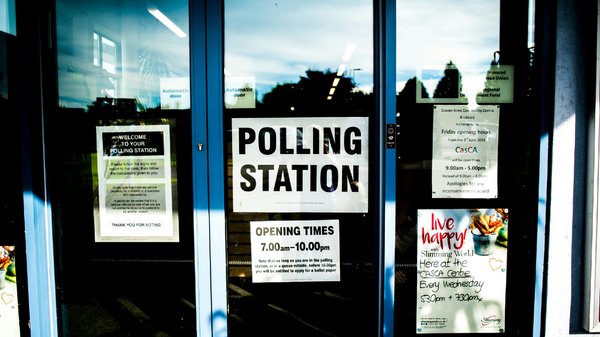One week to go...
The election is only a week away, so thank you for sticking with us! The material we produce, based around our fact checks, has appeared thousands of times in the media, helping people access good information so they can make informed choices on the issues that matter most to them.
There are of course still several days of campaigning left, and a lot can still happen. But some thoughts are already turning to election day itself, and how the results get reported.
We think it’s really important that the language used is as clear as possible, and that our first-past-the-post system is explained properly to those who find it confusing. Pollsters have continually pointed to a narrow gap in support between the Conservatives and Reform UK, but support for Reform is spread across the country in such a way that the percentage of national support the party enjoys will not be reflected in the number of seats it wins in the House of Commons. 20% support, for example, does not equate to 20% of the seats.
What matters under our first-past-the-post system is how many votes you can win in each constituency and not a percentage of the national vote. It’s important that the electorate understand both the number of seats parties win, AND the percentage of the vote that they get. There are different ways to measure support, but only one way to elect MPs.
Join 72,953 people who trust us to check the facts
Sign up to get weekly updates on politics, immigration, health and more.
Subscribe to weekly email newsletters from Full Fact for updates on politics, immigration, health and more. Our fact checks are free to read but not to produce, so you will also get occasional emails about fundraising and other ways you can help. You can unsubscribe at any time. For more information about how we use your data see our Privacy Policy.
Supermajority?
One potentially misleading term that has entered the public debate in recent days is ‘supermajority’. It was a term first used by Conservative politicians to warn of the dangers of a Labour landslide, but it has now appeared in questions from members of the public and in newspaper headlines.
We’ve pointed out that it doesn’t have any specific meaning in a UK parliamentary context. There is for example nothing that a party with a majority of 200 could do that a party with a majority of 20 could not do, as long as party discipline is maintained. There are no special powers and privileges that come with larger majorities. Other political systems are different. Some require two third majorities to affect certain outcomes What matters is that people understand the context in which remarks are made.
Speaking of language, we’ve also been using our Full Fact AI tools to monitor hundreds of hours of broadcast news and comment about the election on TV, radio and podcasts over the course of seven days. And we found that ‘tax’ was the most-used of a variety of election-related terms we searched for - it appeared 6574 times, more than twice as many as other keywords like ‘health’ or ‘schools’ or ‘family’.
What was disappointing was that within these mentions were more than 60 repeated references to high-profile claims which Full Fact has concluded are misleading: the Conservative Party’s claims that a Labour government would lead to £2,000 tax increase for a working family, and the Labour Party’s claim that a Conservative government would lead to £4,800 increase in mortgage payments.
The tendency to repeat dubious claims may also be counter-productive. Polling we’ve done with Savanta suggests that among undecided voters - presumably the focus of considerable attention in the last few days of the campaign - as many as 85% don’t think the main parties have been honest in costing the policies of their rivals. So, there is a danger that the parties could be putting people off politics just when they should be most engaged.
It’s a reminder that this has not been the most edifying campaign, and that is a great pity at a time when all politicians need to do more to help restore trust in politics, and to promote honest debate.
Maybe we shouldn’t be surprised - elections are rarely time for niceties. And it was therefore heartening to discover the most used four-word phrase in the 688 hours of output that we monitored: “Thank you very much.”
